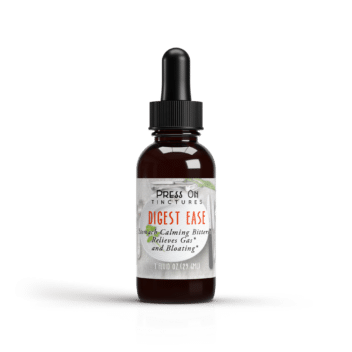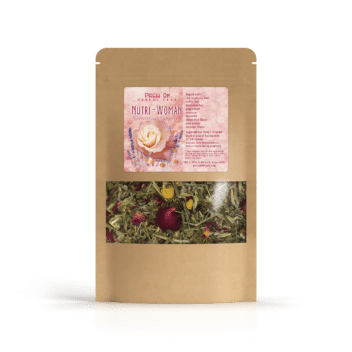Digestion and Herbal Medicine
The Process of Digestion
Digestion is the complex process by which our body breaks down food into nutrients that can be absorbed and used for energy, growth, and cell repair. It begins in the mouth, where food is mechanically broken down by chewing and mixed with saliva. This process continues in the stomach and intestines, where enzymes and acids further break down food into its nutrient components. Efficient digestion is vital for ensuring that the body absorbs the nutrients necessary for maintaining health and energy levels.
The Importance of a Healthy Digestive System
A healthy digestive system is crucial for maintaining overall health, as it ensures that our body gets the necessary nutrients it needs to function properly. It plays a significant role in our immune system, with a large portion of immune cells residing in the gut. When the digestive system functions optimally, it can effectively fend off pathogens and maintain a strong immune defense. Moreover, a well-functioning digestive system can significantly impact our mental health, as the gut-brain axis links our emotional and cognitive centers to our digestive tract.
Consequences of Impaired Digestion
When digestion is impaired, it can lead to various issues such as bloating, gas, constipation, diarrhea, and abdominal pain. Over time, poor digestion can also affect nutrient absorption, leading to deficiencies and impacting our overall health. Chronic digestive issues may result in more serious conditions such as irritable bowel syndrome (IBS) or inflammatory bowel disease (IBD). Addressing these issues early with natural remedies like herbal medicine can prevent the progression of symptoms and improve quality of life.
The Role of Herbal Medicine in Digestion
Historical Use of Herbal Medicine
Herbal medicine has been used for centuries to support digestion and treat digestive disorders. Ancient civilizations, such as the Egyptians, Chinese, and Greeks, recognized the power of herbs to heal the body and improve digestion. They documented various plant-based treatments in their medical texts, many of which are still used today. These traditional practices have laid the foundation for modern herbal medicine, providing a rich source of knowledge and experience.
Mechanisms of Action in Herbal Medicine
Herbal medicine involves using plant-based remedies that can help improve digestive function, reduce symptoms, and promote gut health. Many herbs contain natural compounds that stimulate digestive enzymes, soothe the digestive tract, and alleviate common issues like indigestion and bloating. These compounds work synergistically to support the body’s natural processes, enhancing digestion without the harsh side effects often associated with synthetic drugs. For example, volatile oils in peppermint help relax gastrointestinal muscles, while bitter compounds in ginger stimulate digestive juices.
Scientific Support for Herbal Remedies
Numerous studies have supported the efficacy of herbal medicine in treating digestive issues. Research has shown that many herbs are not only effective but also safe for long-term use. For instance, clinical trials have demonstrated that ginger can significantly reduce nausea and vomiting, while peppermint oil can alleviate symptoms of IBS. As scientific interest in herbal remedies grows, more studies are being conducted to understand the mechanisms behind these natural treatments and to validate their traditional uses.
Benefits of Herbal Medicine for Digestion
Natural and Gentle Solutions
Herbal remedies are derived from plants, making them a natural and gentle option for those seeking to improve their digestive health without synthetic drugs. Unlike pharmaceuticals, which can have a range of side effects, herbs tend to support the body’s natural healing processes. They offer a holistic approach that not only targets symptoms but also promotes overall well-being. Their gentle nature makes them suitable for long-term use, providing a sustainable solution for digestive health.
Support for Gut Health
Many herbs help maintain a healthy balance of gut bacteria, which is essential for proper digestion and overall well-being. The gut microbiome plays a crucial role in breaking down food, synthesizing vitamins, and protecting against pathogens. Herbs like licorice root and fennel contain prebiotics, which feed beneficial bacteria and promote a balanced microbial environment. By supporting gut health, these herbs contribute to improved digestion, enhanced immunity, and better mental health.
Symptom Relief and Prevention
Herbal medicine can effectively reduce symptoms such as bloating, gas, and discomfort, providing relief from digestive disturbances. Herbs like chamomile and peppermint have antispasmodic properties that relax the digestive tract, alleviating cramps and pain. Regular use of these herbs can prevent the occurrence of digestive issues, offering a proactive approach to health maintenance. By addressing symptoms early, herbal remedies help prevent the development of chronic digestive conditions.
Holistic Approach to Digestive Health
Herbal medicine often addresses the root cause of digestive issues rather than just masking symptoms, promoting long-term digestive health. It considers the interconnectedness of the body’s systems, recognizing that digestive issues may stem from stress, poor diet, or lifestyle factors. By taking a holistic approach, herbal medicine not only improves digestion but also enhances overall health. This comprehensive perspective ensures that individuals achieve lasting wellness and vitality.
Best Herbal Medicines for Digestion
1. Ginger
Ginger is well-known for its ability to soothe the stomach and alleviate nausea. It contains compounds called gingerols and shogaols, which help relax the intestinal tract, reduce inflammation, and improve digestion. These compounds have potent anti-inflammatory and antioxidant effects, making ginger an effective remedy for various digestive issues. Additionally, ginger can enhance gastric motility, ensuring that food moves smoothly through the digestive tract.
2. Peppermint
Peppermint is a popular herb for relieving digestive issues, especially irritable bowel syndrome (IBS). It contains menthol, which has a relaxing effect on the muscles of the gastrointestinal tract, reducing symptoms like bloating, gas, and cramps. Peppermint oil capsules have been shown to be particularly effective in managing IBS symptoms, providing a natural alternative to conventional treatments. Furthermore, peppermint’s soothing properties can help reduce stress, a common trigger for digestive disturbances.
3. Fennel
Fennel seeds are often used to improve digestion and reduce bloating. They have antispasmodic properties that help relax the muscles in the intestines, promoting smoother digestion and reducing discomfort. Fennel is also a rich source of fiber, which supports regular bowel movements and prevents constipation. Its mild, sweet flavor makes it a versatile addition to various dishes, allowing individuals to enjoy its digestive benefits in their daily meals.
4. Chamomile
Chamomile is known for its calming effects, which can also benefit the digestive system. It helps reduce inflammation in the stomach and intestines, alleviating symptoms of indigestion and gas. Chamomile’s gentle nature makes it suitable for individuals of all ages, including children. Drinking chamomile tea before bedtime can promote relaxation and improve sleep quality, further supporting digestive health by reducing stress-related digestive issues.
5. Licorice Root
Licorice root has been used traditionally to treat various digestive issues. It helps protect the stomach lining and reduces inflammation, making it beneficial for conditions like acid reflux and stomach ulcers. The active compound glycyrrhizin in licorice root has been shown to enhance mucus production, which acts as a protective barrier against stomach acids. However, it’s important to use deglycyrrhizinated licorice (DGL) to avoid potential side effects like high blood pressure.
Natural Digestive Aids and Gut Health Herbs
Probiotics for a Balanced Microbiome
Probiotics are beneficial bacteria that help maintain a healthy balance in the gut microbiome. They can be found in fermented foods like yogurt, kefir, and sauerkraut, or taken as supplements. These microorganisms play a crucial role in digestion, aiding in the breakdown of food and absorption of nutrients. Regular consumption of probiotics can prevent the overgrowth of harmful bacteria, reduce inflammation, and improve overall gut health.
Dietary Fiber for Digestive Regularity
A diet rich in fiber from fruits, vegetables, and whole grains promotes regular bowel movements and supports a healthy digestive system. Fiber adds bulk to stool, making it easier to pass and preventing constipation. It also acts as a prebiotic, feeding the beneficial bacteria in the gut and promoting a balanced microbiome. Incorporating a variety of fiber-rich foods into your diet can enhance digestion and reduce the risk of digestive disorders.
Hydration and Its Role in Digestion
Drinking plenty of water is essential for digestion, as it helps break down food and move it through the digestive tract. Adequate hydration ensures that digestive enzymes function optimally, facilitating nutrient absorption. Water also softens stool, preventing constipation and promoting regularity. Staying hydrated is particularly important in hot weather or during physical activity, as dehydration can exacerbate digestive issues.
Mindful Eating for Improved Digestion
Eating slowly and mindfully can improve digestion by allowing your body to properly break down food and absorb nutrients. Taking time to chew food thoroughly reduces the workload on the stomach and intestines, preventing indigestion and bloating. Mindful eating also encourages a greater awareness of hunger and satiety cues, helping to prevent overeating and support healthy weight management. By fostering a deeper connection with food, mindful eating enhances the overall dining experience and promotes digestive health.
Incorporating Herbal Medicine into Your Routine
Consulting with Healthcare Professionals
When incorporating herbal medicine into your routine, it’s important to consult with a healthcare professional, especially if you have existing health conditions or are taking medications. They can help determine the best herbal remedies and dosages for your specific needs. A healthcare provider can also monitor your progress and adjust your regimen as necessary, ensuring that you achieve optimal results. This collaborative approach enhances the safety and effectiveness of herbal treatments.
Herbal Teas as a Daily Ritual
Herbal teas are a simple and enjoyable way to incorporate digestive herbs into your daily routine. Many digestive herbs, like chamomile and peppermint, can be consumed as teas. They are soothing and can be enjoyed daily, providing a gentle means of supporting digestive health. Sipping herbal tea can also promote relaxation, reducing stress-related digestive issues and contributing to overall well-being.
Herbal Supplements for Targeted Support
For a more concentrated dose, herbal supplements are available in capsule or tincture form. Follow the recommended dosage and instructions to ensure safe and effective use. Herbal supplements offer targeted support for specific digestive issues, providing a convenient option for those with busy lifestyles. They can be easily incorporated into daily routines, offering a practical solution for maintaining digestive health.
Culinary Herbs for Flavor and Function
Incorporate digestive herbs into your cooking to enjoy their benefits while enhancing the flavor of your meals. For example, use ginger in stir-fries, fennel in salads, and peppermint in desserts. Culinary herbs not only provide digestive support but also add depth and complexity to dishes. Experimenting with different herbs can inspire creativity in the kitchen and contribute to a varied and nutritious diet.
Conclusion
Herbal medicine offers a natural and effective way to support digestion and maintain gut health. By incorporating herbs like ginger, peppermint, and fennel into your daily routine, you can alleviate digestive discomfort and promote a healthy digestive system. Remember to consult with a healthcare provider to ensure the best approach for your individual needs. Embracing herbal medicine for digestion not only enhances your well-being but also connects you to time-tested natural remedies that have supported human health for generations. Through a combination of traditional wisdom and modern understanding, herbal medicine provides a holistic path to digestive wellness and overall vitality.






